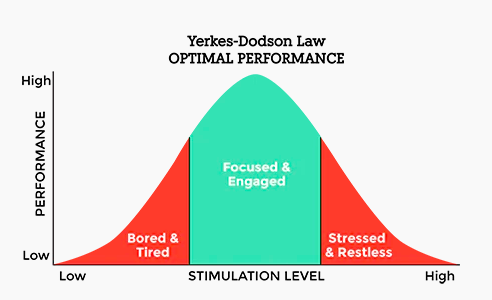Distraction and lack of concentration are one of the most common problems when learning a language. Reading a foreign language text, listening to a podcast, writing a text, or learning vocabulary requires your full attention. If you are too distracted, your memory will not be able to absorb the input.
It’s normal for your concentration to wane after 30-45 minutes. However, there are ways to increase your concentration if you feel it slipping.
In this article, I’ll give you seven tips on how to increase your concentration and focus better when you’re learning or studying a foreign language.
Check your general brain health
First of all, there are some basic behaviors that keep our body and brain healthy. It is impossible to separate concentration and general physical health, because concentration is related to the brain, and the brain is an organ in our body.
Six basic rules for the general health of the brain are
- eat a balanced diet with enough omega-3 fatty acids
- drink enough water
- exercise regularly (at least 30 minutes a day)
- get enough sleep
- avoid alcohol and smoking
- challenge your brain regularly, for example by learning new things
If you follow these rules, you are already doing a lot for your brain and your ability to concentrate.
But what else can you do to increase your concentration in an acute situation?
Create space in the brain
Another thing you can do is a short exercise where you go offline for 15 minutes. Switch off your phone or the notifications on your phone, and write down everything that comes into your mind. Capture all the thoughts that run through your mind and write them down as they come up. If you write them down on paper, your brain won’t try to process them as soon as they come up. Doing so you’re creating some space in the brain and you’re ready to fully focus on language learning.
Stop multitasking
Did you know that multitasking is a myth? It doesn’t work. Our brain cannot do two things at the same time because it switches back and forth between tasks, so we process the tasks one after the other.
Multitasking stresses your brain and leads to decreased concentration. If you can’t stop thinking about the things you have to do, go back to tip 2 and write all your thoughts down. Focus yourself on one thing at a time and your learning results will be better!
Slow down your pace
Nowadays we want to have everything ready before we have even really started. The best thing would be not to have to start learning the language at all, but to have reached a certain level of proficiency after just one week. Learning a language takes time, and we should take that time. If you are learning vocabulary today, stick with it and do it slowly. Don’t go through flashcards in a rush, but take your time and repeat them several times. Allow yourself to do things slowly, but deliberately. You will benefit in the long run.
Study in 30 to 45-minute blocks
Another option is to study in 30- to 45-minute blocks. For adults, concentration wanes after 45 minutes, and for children after 15-30 minutes, depending on their age. Some people can maintain concentration for 90 minutes, but it is better to take a break after 45 minutes.
Start studying and set a timer for 30 or 45 minutes, then take a break. The break allows the brain to refuel, and you will return to your task with more energy and concentration.
The following chart shows that we are most productive when our brain and body are activated in an intermediate range.

Take an active break
When you take a break from studying, an active break can help you focus. An active break can consist of stretching, doing a fitness exercise, taking a short walk, or just walking around the house. Moving the body releases endorphins and helps our brains restore the balance between tension and relaxation. It helps us return to an intermediate level of activity, where we work most efficiently. It is the perfect concentration booster.
Meditate or do relaxation exercises
Meditation is an excellent way to exercise the brain and better focus its attention. Any type of relaxation exercise helps to get back into the middle range of an activity level. I personally like to take short 5-minute meditation breaks where I focus only on my breath. I also like to do short 5-minute yoga sessions when I take a break from working or studying. Meditation really clears the mind and trains you to pay attention to your breath. There are many studies that show that meditation and mindfulness have an impact on concentration and attention skills, because you train your brain to do the same thing when you focus on language learning.